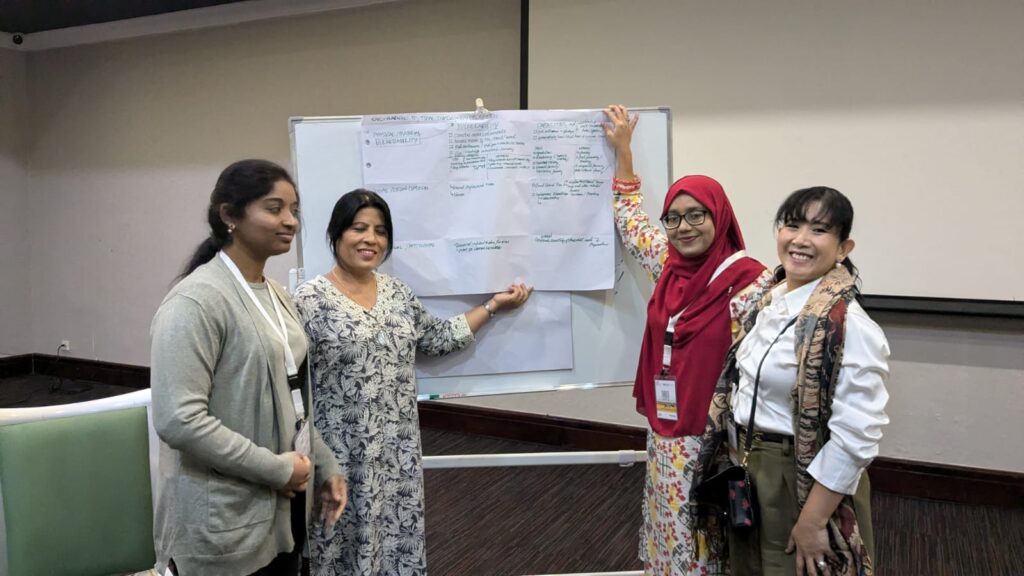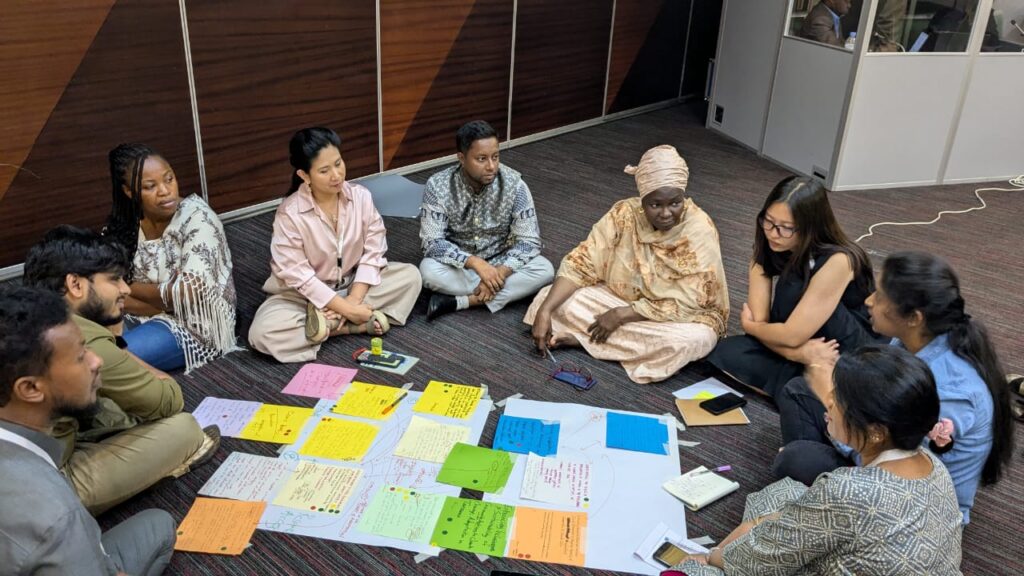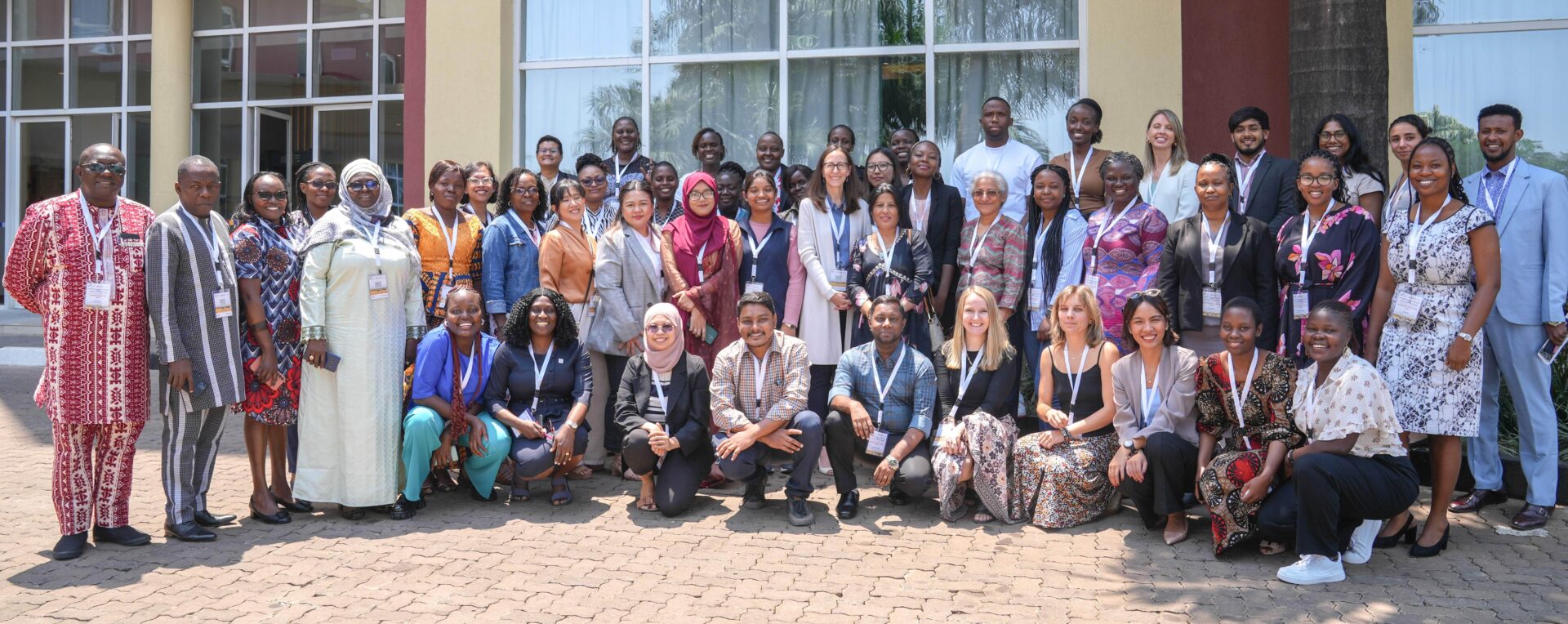Resilient Futures Through GEI: Reflections from the Gender Equality and Inclusion (GEI) Workshop from RECOVER
/
Authored by Swetha Thammadi
The CLARE Gender Equality and Inclusion (GEI) Workshop co-convened by CLARE’s GEI Hub, Capacity Strengthening (CS) Hub and Vanguard Economics took place from 16-20 September, 2024 in Kigali, Rwanda. The five-day workshop brought together GEI champions and early career researchers from 24 projects within the CLARE Programme including RECOVER GEI focal point, Swetha Thammadi from the University of Fiji.
The GEI workshop provided a platform for GEI focal points who are members of the CLARE GEI Working Group and early career researchers from across the CLARE programme to interact, learn and share experiences on good practices in integrating GEI into their project activities. Through interactive sessions, peer learning, case studies and mapping project challenges, the workshop stimulated exciting discussions on effective GEI participatory methodologies and developed a shared understanding of moving forward with effective delivery of GEI component within the respective CLARE projects. The initiative strengthened the capacity of community members to advance climate action that meets the needs of all.
“The Marketplace”, was an exercise that allowed participants to explore CLARE Programme projects and their GEI-related work. Discussions centred on gender inequality and climate change, intersectionality, power, and agency which provided the enlightening perspectives of participants across the globe. The “World Café,” exercise allowed participants to examine the projects through various GEI frameworks, learning methods for gender-sensitive research, including surveys and mapping. Field visits to the Nyamirambo Women’s Centre and the Genocide Memorial Park provided deeper insights into Rwanda’s history and grassroots initiatives. We learned that – the development of sustainable livelihoods, mental health and peace education play a vital role in mitigating conflict, especially as mass migration increases due to climate change. The Open Space methodology encouraged exploration of themes for future collaboration.



For the RECOVER project, insights gained from the workshop are instrumental in refining approaches to GEI and community engagement through Real-World Labs (RWLs). These labs facilitate citizen involvement in project feedback, enhancing ownership and relevance. Key learnings on stakeholder mapping and participatory processes will be integrated into RECOVER’s methodologies.
For RECOVER, GEI is a pivotal aspect of the project and a key factor in driving transformational change through engagement with focus groups and RWLs. RECOVER’s fifth objective utilizes RWLs, to engage citizen scientists to provide feedback on project outputs, fostering a sense of ownership within the communities involved. RECOVER recognizes GEI as a critical element for driving transformational change, emphasizing community engagement and strong partnerships among stakeholders. The workshop underscored the importance of intersectional approaches and participatory methodologies in building resilience in small island countries. The workshop served as a valuable platform for sharing experiences in integrating GEI into project activities. Participants discussed frameworks like Gender at Work, the Pro-WEAI index, and tools for gender analysis, enhancing the understanding of GEI research methods. Learnings on GEI concepts, participatory methodologies, and stakeholder mapping will be integrated into RECOVER’s approaches. Resources from the GEI workshop enhanced the project’s understanding of stakeholder mapping and its crucial role in participatory processes. The GEI workshop highlighted the importance of intersectional approaches, participatory methodologies, and the application of this learning to current work with communities. It provided a valuable opportunity to learn from other projects and colleagues.
RECOVER extends its heartfelt thanks to the teams involved in organizing the workshop, including facilitators from the CLARE GEI Working Group, the Capacity Strengthening Hub (African Centre for Technology Studies (ACTS), PlanAdapt), Vanguard Economics , and the CLARE team.
Categories
Countries
CLARE Pillars
CLARE Themes
CLARE Topics


